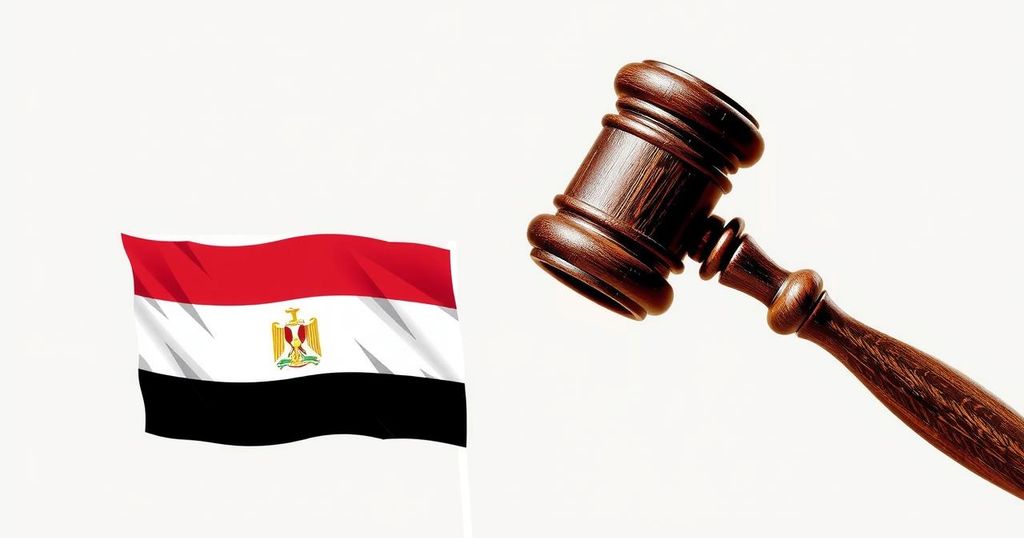Opposition Mounts Against Egypt’s Proposed Criminal Procedure Code Revision
Egypt’s parliament has approved a draft bill to replace the 1950 Criminal Procedure Code, facing strong opposition from civil society and international organizations. Critics argue the draft perpetuates oppressive practices, enhances prosecutorial power, and undermines judicial oversight. Despite minor adjustments to pretrial detention, the draft fails to align with international obligations and continues to foster systemic abuses.
This week, the Egyptian parliament hastily approved, in principle, a draft bill proposing the replacement of the 1950 Criminal Procedure Code. This initiative has been met with strong opposition from diverse stakeholders, including the Lawyers’ Syndicate, the Journalists’ Syndicate, various human rights organizations such as Human Rights Watch, political parties, and independent experts from the United Nations. Critics emphasize that the draft, developed mostly in secrecy by a parliamentary subcommittee, does not adequately address pressing concerns raised by civil society and reflects a continuation of oppressive practices rather than meaningful reform.
The existing Criminal Procedure Code has allowed for extended pretrial detentions without adequate court hearings or verification of misconduct. It significantly lacks precise definitions of systemic issues such as torture and enforced disappearances. These gaps have enabled President Abdel Fattah al-Sisi’s government to exploit the judicial framework as a means of repression, leading to the arbitrary detention and prosecution of tens of thousands of dissenters since 2013, some of whom have tragically lost their lives in custody.
Initial analyses of the new draft reveal that it fails to implement substantial reforms. Instead, it enhances the authority of prosecutors while undermining judicial oversight, granting security forces a wider margin of unchecked power. Although some adjustments were made to reduce the maximum allowable period for pretrial detention, these changes fall short of aligning with Egypt’s international obligations regarding timely judicial review. The draft retains broad prosecutorial powers that allow for prolonged detentions without judicial checks, perpetuating a cycle of arbitrary detention through tactics such as the recycling of charges. Furthermore, it expands the application of an abusive videoconferencing system that isolates detainees from meaningful interactions, undermining fundamental fair trial rights.
The overwhelming opposition to this draft illustrates the resilience of Egyptian civil society, which persists despite ongoing repression and authoritarian governance. The proposed legislation raises serious concerns about the authorities’ lack of commitment to curtailing repression and to addressing the intertwined crises affecting political stability and economic welfare in Egypt.
The legislative process in Egypt has become a focal point of contention, particularly regarding changes to fundamental laws such as the Criminal Procedure Code established in 1950. Under President Abdel Fattah al-Sisi’s regime, many laws have been criticized as tools for suppressing dissent and undermining human rights. Key issues include the prolonged duration of pretrial detention, inadequate safeguards for judicial oversight, and insufficient remedies for the pervasive practices of torture and enforced disappearances. The international community, along with domestic civil society organizations, has increasingly scrutinized these developments, urging a reassessment of legal reforms that align with global human rights standards.
In summary, the recent approval of the draft Criminal Procedure Code by the Egyptian parliament raises significant concerns regarding the ongoing patterns of repression and violations of fundamental rights. The lack of substantial reform in the proposed legislation signifies a troubling commitment to maintaining oppressive practices rather than advancing justice or protecting civil liberties. Stakeholders from various sectors must advocate for meaningful dialogue and reform that genuinely respects the rule of law and human rights in Egypt.
Original Source: www.hrw.org




Post Comment